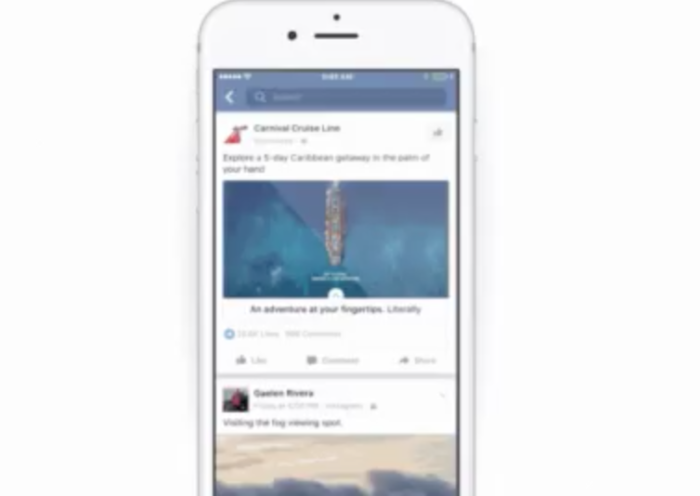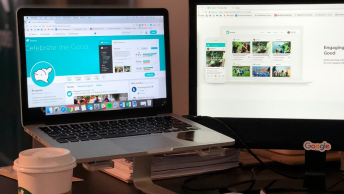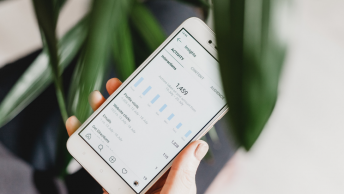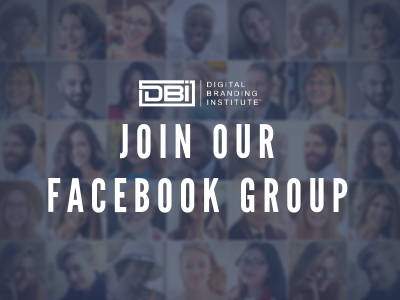PPC for small business has many benefits because of how fast it can generate results. With the right keywords, you can target the right people at the right time and see measurable results.
PPC for Small Business
In traditional advertising, you have to pay a flat fee or subscription for any banner space. With PPC, you only have to pay with a user actually clicks through to your site.
Google recommends keeping these goals in mind when getting started with small business advertising:
1. Set Your Goals
2. Do Your Research
3. Define Your Budget
4. Set Your Structure
5. Choose Your Keywords
6. Be Relevant
7. Use Strong Messaging
8. Look At the Whole Picture
What Types of Businesses can Benefit from PPC?
Every small business can benefit from building its web presence. Pay-per-click marketing strategies can be a great way to build that presence as long as have identified targeted, relevant keywords. You also need to understand your audience and develop a strategy that will bring in the right kind of leads.
Specific characteristics of small business that can increase their positive PPC results are:
- High-Profit Margins: When your advertised product has a high profit, your business campaign may choose to pay more per click. These high revenue products might be items like vehicles, home renovations, or lawsuits.
- Niche Products: If your product or service is difficult for your customers to find, then you’re a great candidate for PPC for small business. With more people taking to the internet to find unusual or rare products, including a PPC marketing strategy, will make your products easier to find.
- Increased Customer Lifetime Value: A higher lifetime value typically means a higher PPC budget. This is because each new conversion has the potential to yield a very high lifetime value for each new customer that it takes in. These services are usual educational programs, utility providers, subscription services, and doctors.
If your business contains any of these traits, then you’ll know that you qualify to create a PPC for small business right away.
Which Search Engine Platform is Best?
Google Adwords and Bing Ads are the most popular and most commonly used PPC advertising platforms. Paid search is becoming increasingly more competitive and top platforms will cost more per click. These are not the only options for small business though.

This search engine always comes out on top when researching most used search engine. When using it for PPC for small business. you’ll need to research your campaign’s top keywords to price out the PPC prices. Within your small business niche, you might be able to rank for a reasonable price.
Bing
This is the second most popular search engine. Consequently, Bing tends to consistently hold a 33% market share in paid search engine advertising. Another bonus to using Bing is that its advertisements are also displayed on Yahoo because of a partnership agreement. Advertising on Bing will cost less than Google and show off your ads on two search engines.
Yelp
Yelp Ads are great for small businesses looking to expand their paid search reach. They work best for targeting specific local, region, or national markets. Yelp ads also tend to appear on the top of searchers on competitor pages as well. These ads are effective for small businesses because they work to encourage engagement through reviews.
SEE ALSO: How to Handle Negative Yelp Reviews
Yahoo
Yahoo Gemini actually works to supply small businesses with a healthy amount of conversions. They use their model, which they refer to as ‘native advertising’ to achieve this goal. Yahoo Stream Ads will appear within the native content with a box that says sponsored at the end of it. However, because this content is within the more natural results, these ads usually see a high engagement rate.
Which Social Media Advertising Platform Should I use for PPC for Small Business?
Social media platforms can vary when it comes to audience size, cost, and demographic reach. This is why you’ll need to do some research before selecting the right platform for your small business.

Facebook: It’s the most popular platform for social media PPC campaigns. Its users will see you as they scroll down and while they don’t know exactly what they’re looking for. However, they are usually open to discovering a new idea, service, or business.
Instagram: A small business that can convey powerful messages using images will work perfectly here.
YouTube: If your business knows how to communicate effectively using video, or if your an industry that uses tutorials to advertise, you’ll find success on YouTube.
Twitter: This site will increase exposure, share content, create a brand voice, and allow you to offer deals to potential customers.
LinkedIn: Business to business (B2B) enterprises work best here when using LinkedIn advertising.
Pinterest: Females tend to dominate this user market. Your small business will find success on Pinterest if you are a product that targets women.
Snapchat: Use this medium for specific calls to action, business announcements, and exciting press releases if you want to utilize Snapchat for your marketing strategy.
As each platform is drastically different and can offer different benefits to your small business, you’ll probably want to create a strategy that will involve multiple platforms. This will increase your potential for reaching a larger converting audience.
The Benefits of PPC for Small Business
These examples will show you right away whether or not PPC is the right direction for your marketing strategy.
Fast Results
PPC is one of the fastest ways to run an advertising campaign that will get instant results. All you have to do is set up your ads and run them on your preferred network, and you’ll start getting traffic. This may sound oversimplified, which it is, but PPC is very efficient for reaching your target audience in the fastest possible way.
Measurable Results
You can easily measure anything that is related to your PPC campaign. This includes costs, profits, views, clicks, and visits. As soon as you start your PPC campaign, you will know how much you spend and if you’re generating a profit or a loss. Using many different reports and KPIs, you will be provided with all the information you need and all the data that is essential to marketing departments.
No Worrying about SEO or Google Algorithmic Changes
SEO is great for long-term success if you have an SEO friendly website and comply with SEO best standards and practices. However, it’s nice to not have to worry about Google and the many changes they make when deciding their ranking algorithms. PPC bypasses all of that for their profitable campaigns.
Reach the Right Audience

In a PPC campaign, you choose when and where your ads will appear based on several different factors like keywords, location, website, time, device, and date. This level of flexibility will allow you to segment your market and bring your products and services directly to the right audience.
Find New Business Opportunities
No matter what your business, if you find that your competitor has been taken offline due to a technical problem, that’s your opportunity to step in. You can run a targeted PPC campaign that will give their angry customers a new option. PPC is the only possible way to do this because it is easy to implement and can generate instant results.
Brand Recognition
PPC is used to target keywords related to your industry. This means that people searching for those keywords will constantly see your ads. General keywords may not generate more sales, however, they will increase brand awareness and establish your business as a leader in your industry.
Find Local Customers
PPC works great for local search. If people are searching using their phones for products in the area, they can see your ads, click them, and receive directions for your store. 75% of people are more likely to visit a physical store if they see it in the search results. Without that visibility, they will probably click on your competitors and you’ll have lost a customer.
Budget Friendly
PPC has no budget restrictions. You get to choose how much you want to pay for a click and how much money you want to spend on your campaign. As everything is measurable, you can easily decide if what you are spending is creating enough profit, and change your ad accordingly. Typically, if your campaign is profitable, then you can safely spend more money on it until you reach your maximum ROI.
Test Your Marketing Strategies for Other Mediums
If you want to test out which product headline or ad copy will perform better in a campaign, PPC is the way to do it. You can easily set up different ads in Google Adwords and run them for a couple of weeks online and then analyze the results. The ad you created that has the highest click-through rate (CTR) is probably the most attractive ad for your target audience.
Final Thoughts
Developing PPC for small business can be a great way to build your digital brand. Just getting your brand name out there can be perk enough when developing a PPC campaign. Brand recognizability will go a long way towards developing future and long-term business for your brand.
What are your favorite sites to post ads on?











